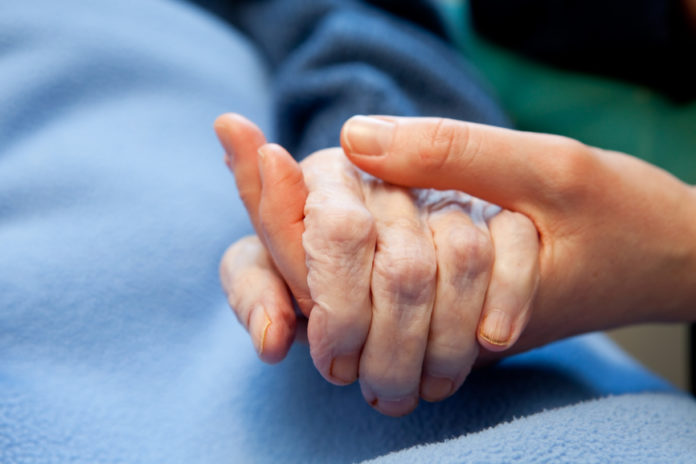By Michael Watts and Swetha Popuri
On June 17, 2016 the federal government passed Bill C-14 on medical assistance in dying (MAID) in response to the Supreme Court’s 2015 decision in Carter v. Canada. As directed by Bill C-14, provincial Ministers of Health have been tasked with implementing MAID through various regulations. In particular, provincial Ministers of Health are required to establish guidelines on the information to be included on death certificates of deceased persons who accessed MAID. The critical question is whether MAID will be identified as the cause of death for these persons, as opposed to their underlying illness, condition or disability.
In Ontario, the Ministry of Health and Long-Term Care (MoHLTC) policy on MAID directs physicians to notify the Office of the Coroner (Coroner) following the death of any patients who requested MAID. The Coroner is then required to complete the Medical Certificate of Death for these individuals. In response, the College of Physicians and Surgeons of Ontario (CPSO) created a complementary policy on MAID that instructs physicians to notify the Coroner in MAID-related cases.
As to how the Coroner will complete the death certificate in MAID cases, the Chief Coroner for Ontario, Dr. Dirk Huyer has stated the following:
As with any coroner’s case, the death certificate will be completed by the investigating coroner based upon the circumstances of the death. In the current legislative framework, the immediate cause of death will generally be provided as Combined Drug Toxicity, with the underlying condition that led to the MAID request being provided as the Contributing Factor.
As prescribed by the Coroners Act, 1990, notification to the Coroner may trigger several serious consequences: the Coroner may take possession of the body, examine the body and make any investigation that is necessary to the public interest. The Coroner’s investigation may include an autopsy and may trigger an inquest. Each investigation is different and subject to the discretion of the Coroner. It is likely, that no advanced notice of the nature and scope of the investigation will be provided to individuals accessing MAID prior to their death.
By involving the Coroner in MAID-related deaths, the MoHLTC has implicitly taken the position that MAID-related deaths fall within the scope of section 10 of the Coroners Act, 1990. Section 10 of the Coroners Act, 1990 states that the Coroner must be immediately notified by:
- (1) Every person who has reason to believe that a deceased person died,
(f) from any cause other than disease; or
(g) under such circumstances as may require investigation
However, in a string of decisions released between March and June 2016, prior to Bill C-14 receiving Parliamentary assent, the ONSC consistently found that section 10 of the Coroners Act, 1990 did not apply to applicants who sought judicial authorization for MAID.
In AB v Canada (Attorney General), Justice Perrell accepted the argument that section 10(f) of the Coroners Act, 1990 did not apply to AB as the ultimate or antecedent cause of his death was his advanced-stage lymphoma even though he was seeking MAID. In OP v Canada (Attorney General), Justice Perrell again authorized anyone completing the death certificate for OP to indicate that his cause of death was from his underlying conditions, not MAID.
Further, in several decisions, Justice Perrell outright denied that MAID-related deaths constitute circumstances that require an investigation in the public interest and therefore found that section 10(g) of the Coroners Act, 1990 did not apply. Explaining his reasoning, Justice Perrell stated, “put shortly, there is no need to conduct an investigation…pursuant to the Coroners Act either because the information to be gathered by that investigation is already known or because no useful public purpose would be served by gathering the information.”
Other Ontario jurists agreed with Justice Perrell and endorsed his analysis of the appropriate characterization of MAID-related deaths and his interpretation of the Coroners Act, 1990.
Importantly, Justice Perrell’s interpretation of section 10 of the Coroners Act, 1990 allows a physician to complete the death certificates of their patients seeking MAID without involving the Coroner or triggering the serious consequences described above. To the extent that the Coroner’s involvement interferes with the constitutional right to MAID, Justice Perrell’s statutory interpretation aligns with Charter values and the spirit of the decision in Carter.
Now that Bill C-14 has received assent by the Parliament of Canada, the impact of Justice Perrell’s interpretation of the Coroners Act, 1990 and the decisions that preceded June 17, 2016 remains unclear. What is evident is that these decisions are in direct conflict with the interpretation of the Coroners Act, 1990 adopted by the MoHLTC. Moreover, the MoHLTC MAID policy departs from the proposed changes to MAID legislation in other provinces. For example, in Manitoba, Progressive Conservatives have advanced legislative amendments allowing for the underlying condition to be listed as the cause of death in the death certificates of individuals requesting MAID.
Hospitals considering implementing policies and procedures on MAID should be aware that the constitutional validity of the MoHLTC MAID policy requiring physicians to notify the Coroner in MAID-related cases may be open to challenge in the future.
Michael Watts is a Partner and Swetha Popuri is an Associate in the Toronto office of law firm Osler, Hoskin & Harcourt LLP.


